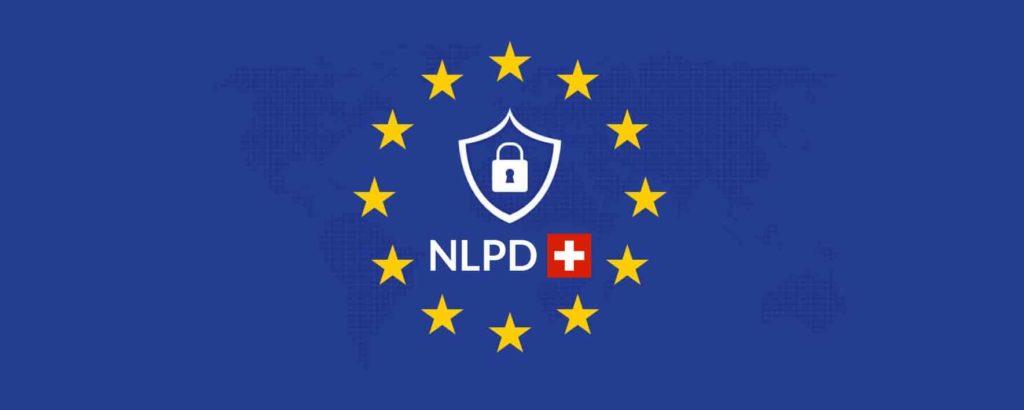Navigating the GDPR & Swiss nLPD Landscape

In the ever-evolving landscape of data protection and privacy, companies worldwide are increasingly tasked with ensuring compliance with stringent regulations. Two key players in this realm are the General Data Protection Regulation (GDPR) and the Swiss Federal Data Protection Act (nLPD).
As a Managed Service Provider (MSP), it is crucial to understand the implications of these regulations on businesses, particularly in the realm of Information Technology (IT). In this article, we aim to shed light on the significance of GDPR and the Swiss nLPD and how they impact businesses relying on MSPs for their IT needs.
Understanding GDPR and Swiss nLPD
The GDPR, implemented in May 2018, is a European Union regulation designed to protect the privacy and personal data of EU citizens. It applies to businesses that process or handle the personal data of EU residents, regardless of the company’s location. The Swiss nLPD, which came into effect in September 2023, serves a similar purpose but applies specifically to Swiss entities.
Implications for businesses
Data Protection Governance:
Both GDPR and Swiss nLPD emphasize the importance of robust data protection governance. Businesses must establish clear policies, procedures, and accountability mechanisms to ensure compliance.
Data Subject Rights:
GDPR and Swiss nLPD grant individuals greater control over their personal data. Businesses need to be prepared to address requests from data subjects regarding access, correction, or deletion of their information.
Data Security Measures:
Companies must implement appropriate technical and organizational measures to ensure the security of personal data. This includes encryption, access controls, and regular security assessments.
Data Breach Notifications:
Both regulations require prompt notification of data breaches to relevant authorities and affected individuals. Businesses must have robust incident response plans in place to minimize the impact of breaches.
International Data Transfers:
GDPR places restrictions on the transfer of personal data outside the EU. Swiss nLPD, similarly, regulates the transfer of data outside of Switzerland. Businesses must ensure compliance when transferring data internationally.
Implication for MSPs
Data Processing Agreements:
MSPs must establish clear data processing agreements with their clients, outlining the responsibilities and obligations regarding the processing of personal data. Compliance with GDPR and Swiss nLPD is a joint effort between the client and the MSP.
Security by Design:
MSPs should adopt a “security by design” approach, integrating data protection measures into the development and maintenance of IT systems. This includes regular security assessments and updates to mitigate vulnerabilities.
Vendor Management:
MSPs often collaborate with various vendors. It is crucial to ensure that all third-party providers comply with GDPR and Swiss nLPD to maintain the integrity of the entire data processing chain.
Employee Training:
Employees of MSPs need to be well-versed in data protection principles and regulations. Regular training programs can help staff stay informed about the latest developments and best practices.
In conclusion, GDPR and Swiss nLPD bring about a paradigm shift in how businesses, particularly those relying on MSPs for IT services, handle personal data. Compliance is not only a legal obligation but also a trust-building exercise with clients and partners. As an MSP, staying informed, proactive, and committed to a culture of data protection is paramount for navigating this complex regulatory landscape successfully.


